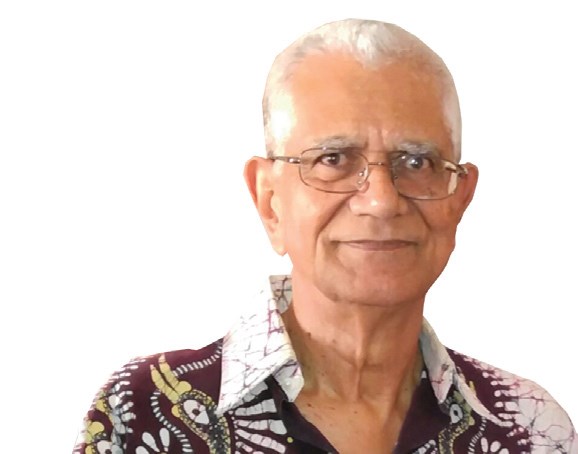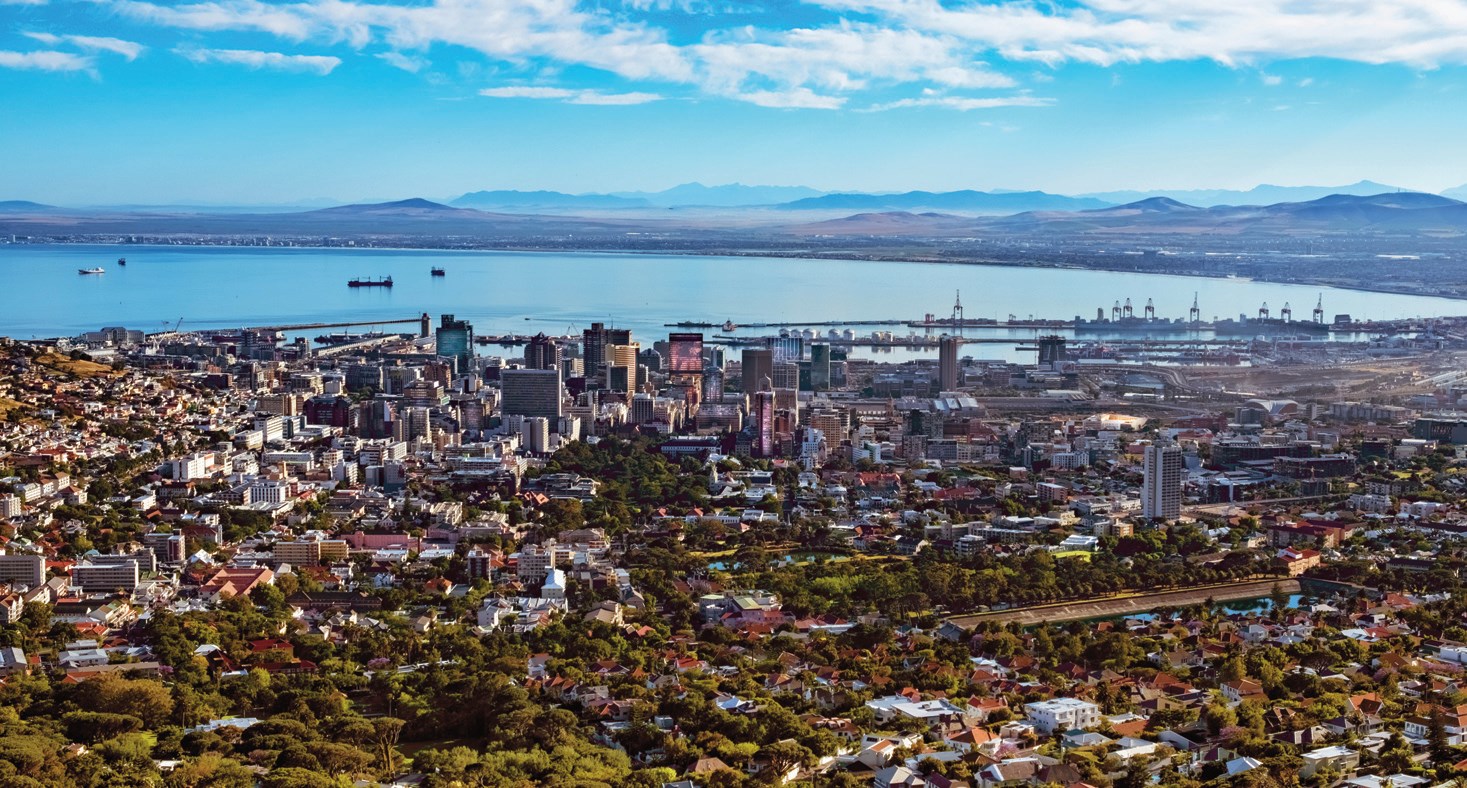Capetown STOCK PHOTO
The Trump administration has asked the U.S. Supreme Court to approve deporting undocumented migrants to South Sudan after a lower court blocked the plan. It is a matter not just about whether President Donald Trump has the authority to take such action but also about the conditions in which the deportees would have to live.
South Sudan became a nation only in 2011 after a brutal civil war between the north and south of what was then a unified Sudan. Its nine million people face political instability, internal fighting, severe food shortages, sexual violence and other human rights violations, along with natural disasters such as floods and droughts.
Judge Brian E. Murphy of the U.S. District Court in Boston did not rule on whether eight deportees, one of whom is from South Sudan, who were picked for the South Sudan trip would be subjected to violence. Instead, he ordered that they be given a “meaningful opportunity” to object to their deportation and to make a case if they felt they would be at risk of torture.
The State Department issued a do-nottravel advisory on March 8 for South Sudan, warning about risks of “crime, kidnapping and armed conflict” that “is ongoing and includes fighting between various political and ethnic groups. Weapons are readily available to the population.” The State Department “ordered the departure of non-emergency U.S. government employees” from the country, adding, “Violent crime, such as carjackings, shootings, ambushes, assaults, robberies, and kidnappings are common” throughout the country.
U.S. Solicitor General D. John Sauer, who presented the government’s case, claimed that Murphy’s ruling thwarted “the government’s ability to remove some of the worst illegal aliens,” without providing evidence. He claimed that the U.S. “is facing a crisis of illegal immigration, in no small part because many of aliens most deserving of removal are often the hardest to remove,” also without explaination. ”As a result, criminal aliens are often allowed to stay in the United States for years on end, victimizing law-abiding Americans in the meantime.”
By the time the judge ruled, a U.S. aircraft carrying the deportees had already taken off but had to land at an American military base in Djibouti, The New York Times reported.
The administration is also planning to fly undocumented immigrants to Rwanda, which Britain tried to do but British courts blocked that policy specifically because of possible violence against deportees. A ruling from the U.K. Court of Appeal and upheld by the Supreme Court specifically stated that Rwanda was not safe for asylum-seekers.
Rwanda was where one of the most horrific civil wars took place when, over a period of 100 days in 1994, members of the majority Hutu tribe massacred between 500,000 and one million members of the minority Tutsi tribes and moderate Hutus in what was planned as a “final solution’ to an ongoing dispute between the two groups. The country still faces ongoing instability and violence.
So, too, Libya, another country to which the administration is reportedly proposing to send migrants, even though that nation spiraled into violence after the dictator Muammar Gaddafi was overthrown in a civil war in 2011 with U.S. help and remains a very dangerous place.
In fact, so serious is the potential for violence in Rwanda and Libya that the. State Department just this year issued do-not-travel advisories also for those countries.
It is not clear why Africa has been chosen as a destination to unload unwelcome refugees and migrants and whether other countries on the continent are also being considered. In any case, it could be regarded as a slap in the face for nations that continue to suffer from the grievous harm which slavery, colonialism and neo-colonialism caused.
In all of this, one certainty remains: Between 1501 and 1866, eight countries enslaved 12.5 million Africans over 365 years:
Portugal (5,843,265), Britain (3,259,440), France (1,381,404) Spain (1,061,525), Netherlands (554,336), United States (305,326) and Denmark (111,041).
“Africa wasn’t just deprived of lost manpower and income but also creativity, innovation and relationships,” Times journalist Lynsey Chutel wrote on the Quartz news site in 2020. “Those losses were multiplied by millions of lives, over hundreds of years, stunting the development of a continent whose governments have since struggled to find the will to ask for restitution.”
Chutel noted that demands in the U.S. for “justice” reached a high point with the rise of the Black Lives Movement following the police killing of George Floyd, adding, “It is time that Africa, the continent on whose losses Europe and
the Americas were built, join that demand.” She recalled that the academic Daniel Tetteh Osabu-Kle, in a 2000 article in the Journal of Black Studies, put the reparation bill at $100 trillion.
But Chutel noted comments by former Zambia vice president Enoch Kavindele at the 2001 United Nations World Conference against Racial Discrimination, Xenophobia and Related Intolerance in Dublin, Ireland. African governments, Kavindele argued, had “lost their nerve” on the issue of reparation. “The new leaders who have come have not been the original freedom fighters – these are subsequent leaders who have found most things already made, already here.”
Kavindele addee, “The new leaders are happy to go to the [International Monetary Fund] and the World Bank to talk about loans to their countries and yet I think they should be talking about compensation and reparation. There’s always the fear that they do not wish to ruffle the feathers of these powerful institutions. These are the same people, the same institutions, that owe us money.”
A 2003 National Geographic book, “Jubilee: The Emergence of African-American Culture,” asserted that the enslaved “helped build a world economy.” The author, Howard Dodson, a former director of The New York Public Library’s Schomburg Center for Research in Black Culture, noted, “According to European colonial officials, the abundant land they had ‘discovered’ in the Americas was useless without sufficient labor to exploit it.”
Dodson added, “Slavery systems of labor exploitation were preferred, but neither European nor Native American sources proved adequate to the task. The trans-Saharan slave trade had long supplied enslaved labor to work on sugar plantations in the Mediterranean alongside white slaves from Russia and the Balkans. This same trade also sent as many as 10,000 slaves a year to serve in North America, the Middle East, and the Iberian Peninsula.”
Journalist P.R. Lockhart, writing in Vox in 2019, noted that, as she put it, “enslaved labor has been presented as premodern, a practice that had no ties to the capitalism that allowed America to become – and remain – a leading global economy.” However, she stated, “Slavery, particularly the cotton slavery that existed from the end of the 18th century to the beginning of the Civil War was a thoroughly modern business, one that was continuously changing to maximize profits.
“The bodies of the enslaved served as America’s largest financial asset and they were forced to maintain America’s most exported commodity. In 60 years, from 1801 to 1862, the amount of cotton picked daily by an enslaved person increased 400 percent. The profits from cotton propelled the U.S. into a position as one of the leading economies of the world and made the South its most prosperous region. The ownership of enslaved people increased wealth for Southern planters so much so that by the dawn of the Civil War, the Mississippi River Valley had more millionaires per capita than any other region.”
Lockhart, who now writes for The Assembly, cited Cornell University historian Edward E. Baptist as taking that argument further. Baptist, who wrote the 2014 book “The Half Has Never Been Told: Slavery and the Making of American Capitalism.” He told Lockhart, “The slavery economy of the U.S. South is deeply tied financially to the North, to Britain, to the point that we can say that people who were buying financial products in these other places were in effect owning slaves and were extracting money from the labor of enslaved people.”
And, now, instead of apologies and reparation for crimes against humanity, Africa is going to get unwanted immigrants?













No Comment